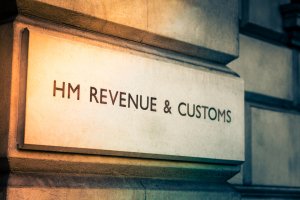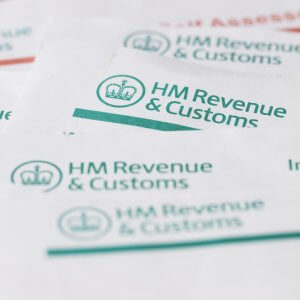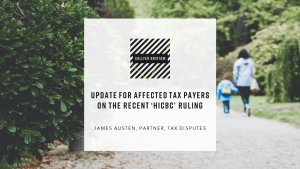- Banking & financial disputes
- Tax disputes & investigations
- UK trusts, tax and estate planning
- Financial services

Shorter Reads
Post-Brexit sanctions and the high net worth individual
Dominic Raab’s vision for a post-Brexit ‘global Britain’ includes the promotion of UK values through what the press repeatedly refers to as a ‘new British sanctions regime.’ But is it the case, as this would suggest, that the UK will take an entirely novel approach to sanctions once it withdraws from the EU? And what impact will this ‘new’ regime have on High Net Worth Individuals (HNWI’s) operating here?
1 minute read
Published 16 June 2020
Key information
- Specialisms
- Private Wealth
- Sectors
- Financial services
The short answer to the first of those questions is no. At its core, the Sanctions and Money Laundering Act 2018 (‘SAMLA’), under which the British regime will operate once the UK has left the EU, is a restatement of the existing position and specific sanctions Regulations (which have already been drawn up under SAMLA but are not yet in force), closely mirror the EU ones currently in place. That said, SAMLA permits the UK government to impose sanctions in a broader set of circumstances than previously, including on people who commit gross human rights violations (the ‘Magnitsky’ amendment) as well as somewhat controversially, for ‘discretionary purposes’ – effectively where the Minister in question believes (and can justify) that there are ‘good reasons to do so.’
In practice, although this extended scope may mean more HNWI’s may find themselves expressly subject to UK sanctions, the impact on them will be largely the same as before. For most targets, (or ‘designated persons’ (DP’s)), this means UK assets will be frozen and their travel to and from the UK monitored or limited. It may also mean restricted access to our financial markets and services.
The impact of such measures on individuals should not be underestimated – they are completely debilitating. Asset freezes provide for all funds and economic resources of DP’s and those associated with them to be frozen and prohibit any dealing with such funds or resources as well as any activity which would circumvent the freezing measures. Most of the key terms will be widely defined to act against the interests of the DP.
The potential for assets of people ‘associated with’ the DP to also be frozen puts family members, close friends and business partners at risk of the full impact of financial sanctions despite not being expressly listed as DP’s themselves.
Nor is it just assets held in the DP’s name that will be affected. Freezes extend to assets held by entities under the DP’s ‘ownership or control’. The UK’s ‘new’ regulations provide a fuller definition of ‘ownership and control’ than was available previously. Again, the result is to cast the net wider. It is no longer just a question of beneficial ownership. Instead, wherever it is ‘reasonable to expect’ that the DP can ensure the affairs of the entity are conducted in accordance with their wishes, the UK assets of that entity will also be frozen. Any company, trust or other entity with links to the DP is therefore also at risk of having its assets frozen.
The net effect on a DP is the effective paralysis of financial functioning within the UK. And there are limited avenues of redress. One key difference to the ‘new’ regime is that post-Brexit, any challenge to a DP’s listing as a sanctions target will be through the UK (rather than EU) courts. SAMLA however prevents application to court unless the DP has first requested revocation of their designation from the Secretary of State. That request invokes an administrative process for which there are no prescribed time limits for the government to respond and no obligation for the government to give reasons for its decisions. Since sanctions are likely to continue unabated in the meantime, there is potential for considerable prejudice to the DP here. Nor is the DP likely to recover damages for losses suffered even if their designation is subsequently overturned since those are only available where the UK government is found to have acted negligently or in bad faith.
This article first appeared on Private Banker International in June 2020.
Related content
Shorter Reads
Post-Brexit sanctions and the high net worth individual
Dominic Raab’s vision for a post-Brexit ‘global Britain’ includes the promotion of UK values through what the press repeatedly refers to as a ‘new British sanctions regime.’ But is it the case, as this would suggest, that the UK will take an entirely novel approach to sanctions once it withdraws from the EU? And what impact will this ‘new’ regime have on High Net Worth Individuals (HNWI’s) operating here?
Published 16 June 2020
Associated sectors / services
Authors
The short answer to the first of those questions is no. At its core, the Sanctions and Money Laundering Act 2018 (‘SAMLA’), under which the British regime will operate once the UK has left the EU, is a restatement of the existing position and specific sanctions Regulations (which have already been drawn up under SAMLA but are not yet in force), closely mirror the EU ones currently in place. That said, SAMLA permits the UK government to impose sanctions in a broader set of circumstances than previously, including on people who commit gross human rights violations (the ‘Magnitsky’ amendment) as well as somewhat controversially, for ‘discretionary purposes’ – effectively where the Minister in question believes (and can justify) that there are ‘good reasons to do so.’
In practice, although this extended scope may mean more HNWI’s may find themselves expressly subject to UK sanctions, the impact on them will be largely the same as before. For most targets, (or ‘designated persons’ (DP’s)), this means UK assets will be frozen and their travel to and from the UK monitored or limited. It may also mean restricted access to our financial markets and services.
The impact of such measures on individuals should not be underestimated – they are completely debilitating. Asset freezes provide for all funds and economic resources of DP’s and those associated with them to be frozen and prohibit any dealing with such funds or resources as well as any activity which would circumvent the freezing measures. Most of the key terms will be widely defined to act against the interests of the DP.
The potential for assets of people ‘associated with’ the DP to also be frozen puts family members, close friends and business partners at risk of the full impact of financial sanctions despite not being expressly listed as DP’s themselves.
Nor is it just assets held in the DP’s name that will be affected. Freezes extend to assets held by entities under the DP’s ‘ownership or control’. The UK’s ‘new’ regulations provide a fuller definition of ‘ownership and control’ than was available previously. Again, the result is to cast the net wider. It is no longer just a question of beneficial ownership. Instead, wherever it is ‘reasonable to expect’ that the DP can ensure the affairs of the entity are conducted in accordance with their wishes, the UK assets of that entity will also be frozen. Any company, trust or other entity with links to the DP is therefore also at risk of having its assets frozen.
The net effect on a DP is the effective paralysis of financial functioning within the UK. And there are limited avenues of redress. One key difference to the ‘new’ regime is that post-Brexit, any challenge to a DP’s listing as a sanctions target will be through the UK (rather than EU) courts. SAMLA however prevents application to court unless the DP has first requested revocation of their designation from the Secretary of State. That request invokes an administrative process for which there are no prescribed time limits for the government to respond and no obligation for the government to give reasons for its decisions. Since sanctions are likely to continue unabated in the meantime, there is potential for considerable prejudice to the DP here. Nor is the DP likely to recover damages for losses suffered even if their designation is subsequently overturned since those are only available where the UK government is found to have acted negligently or in bad faith.
This article first appeared on Private Banker International in June 2020.
Associated sectors / services
- Banking & financial disputes
- Tax disputes & investigations
- UK trusts, tax and estate planning
- Financial services
Authors
Need some more information? Make an enquiry below.
Subscribe
Please add your details and your areas of interest below
Article contributor
Samara
DuttonPartner
Specialising in Trusts & Inheritance disputes and Private wealth
Enjoy reading our articles? why not subscribe to notifications so you’ll never miss one?
Subscribe to our articlesMessage us on WhatsApp (calling not available)
Please note that Collyer Bristow provides this service during office hours for general information and enquiries only and that no legal or other professional advice will be provided over the WhatsApp platform. Please also note that if you choose to use this platform your personal data is likely to be processed outside the UK and EEA, including in the US. Appropriate legal or other professional opinion should be taken before taking or omitting to take any action in respect of any specific problem. Collyer Bristow LLP accepts no liability for any loss or damage which may arise from reliance on information provided. All information will be deleted immediately upon completion of a conversation.
Close

















































































